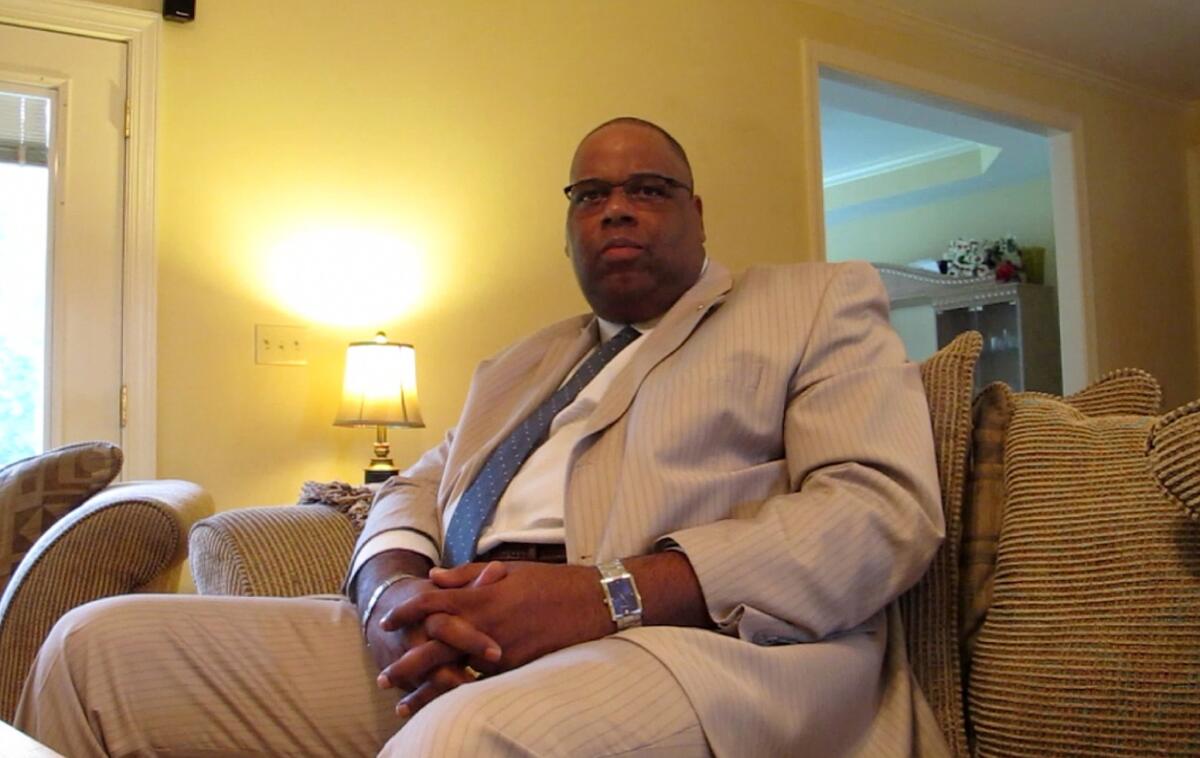Some 2009 Ft. Hood shooting victims battle between hope and reality

- Share via
KILLEEN, Texas -- This week’s shooting at Ft. Hood has drawn attention to survivors of the 2009 shooting at this sprawling Army post -- and, those survivors hope, to their ongoing effort to heal and win compensation from the government.
Numerous victims of the earlier attack sued the government two years ago, arguing that the shooting should be considered terrorism, with the requisite benefits and military commendations.
In that attack, Army psychiatrist Maj. Nidal Malik Hasan had shouted “God is great!” in Arabic before opening fire, and said during his trial last year that he attacked fellow soldiers after turning on the Army to join the mujahedin defending Islam.
PHOTOS: This week’s Ft. Hood shooting
But that wasn’t enough to persuade government officials that the attack was terrorism.
“I’m hoping this will get them to take some action,” said Reed Rubinstein, an attorney representing some of the 2009 victims.
Among those who sued was retired Staff Sgt. Shawn Manning, 38, now an Army mental health counselor.
Manning had been preparing for his third deployment when he was shot six times, one bullet narrowly missing his heart. Out of work after the shooting, he struggled to pay mounting medical bills without help from the government he had served.
He still has bullets lodged in his thigh and back.
Manning appeared in a video trying to draw attention to his fight for benefits, but he said the military and Congress failed to respond.
Last year, Manning had to return to Ft. Hood to testify against his attacker. In August, Hasan was sentenced to death. But his victims are still awaiting justice, Manning said.
“We’re still struck in the place we were four and a half years ago,” he told the Los Angeles Times from his home in Lacey, Wash.
“These guys are going to find out like we did, that once these things play out, there’s a lot of roadblocks in your way,” he said of the latest shooting victims.
In some ways, the latest victims are worse off, he said, because they can’t argue that their attack was terrorism.
“Their injuries are not going to be considered combat-related and their careers, some of them will be ended prematurely,” Manning said.
But another victim of the 2009 shooting was more hopeful.
Retired Army Staff Sgt. Alonzo Lunsford told The Times that he expects the military to do a better job this time of caring for the wounded.
“I think that they will do right by the victims of the second Ft. Hood shooting because they don’t want to receive the same backlash that they received from the first shooting,” said Lunsford, 47, of Lillington, N.C.
Lunsford’s concern was that the shooting will lead those suffering from traumatic brain injuries and PTSD to be further stigmatized rather than treated.
Lunsford was shot seven times during the 2009 attack, and developed both conditions afterward. He and his family have had to learn to live with them.
“If a person has TBI or PTSD, that doesn’t mean they are walking around and being a dangerous person. I have TBI and PTSD and that doesn’t make me a dangerous person,” he said.
He said military counselors struggle with large caseloads and need to spend more time with each soldier.
“What we have to look at is what can we do to make sure that this does not happen again, what can we do to make sure that all service members, when they return home, that they get the necessary help that they need to address all these issues that we are now having.”
Soldiers need to know that they won’t be penalized for opening up about their conditions, he said, and that they won’t be passed over for promotions or forced to leave the military.
“The military has made some progress to make sure these needs are met. But in my opinion, they haven’t made enough progress. Now that the war’s winding down, we need to take a long, hard look at the toll it’s taking on our troops,” he said.
Follow LATimes National on Facebook
ALSO:
Ft. Hood shooting underscores Army’s mental health crisis
Ivan Lopez’s friends, family are shocked by Ft. Hood shooting
In one study, Marines who suffered brain injuries doubled risk of PTSD
More to Read
Sign up for Essential California
The most important California stories and recommendations in your inbox every morning.
You may occasionally receive promotional content from the Los Angeles Times.











